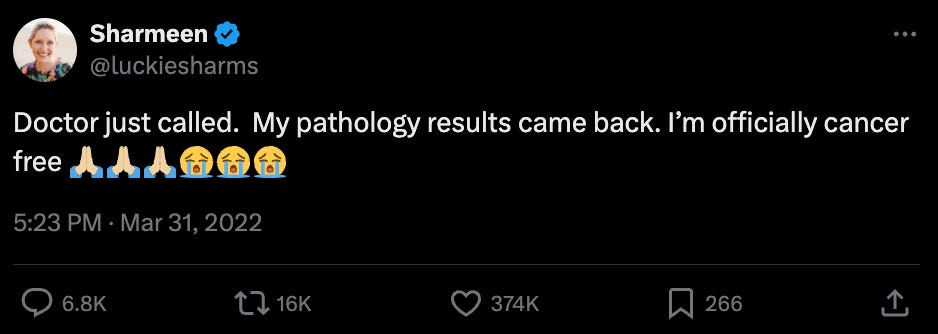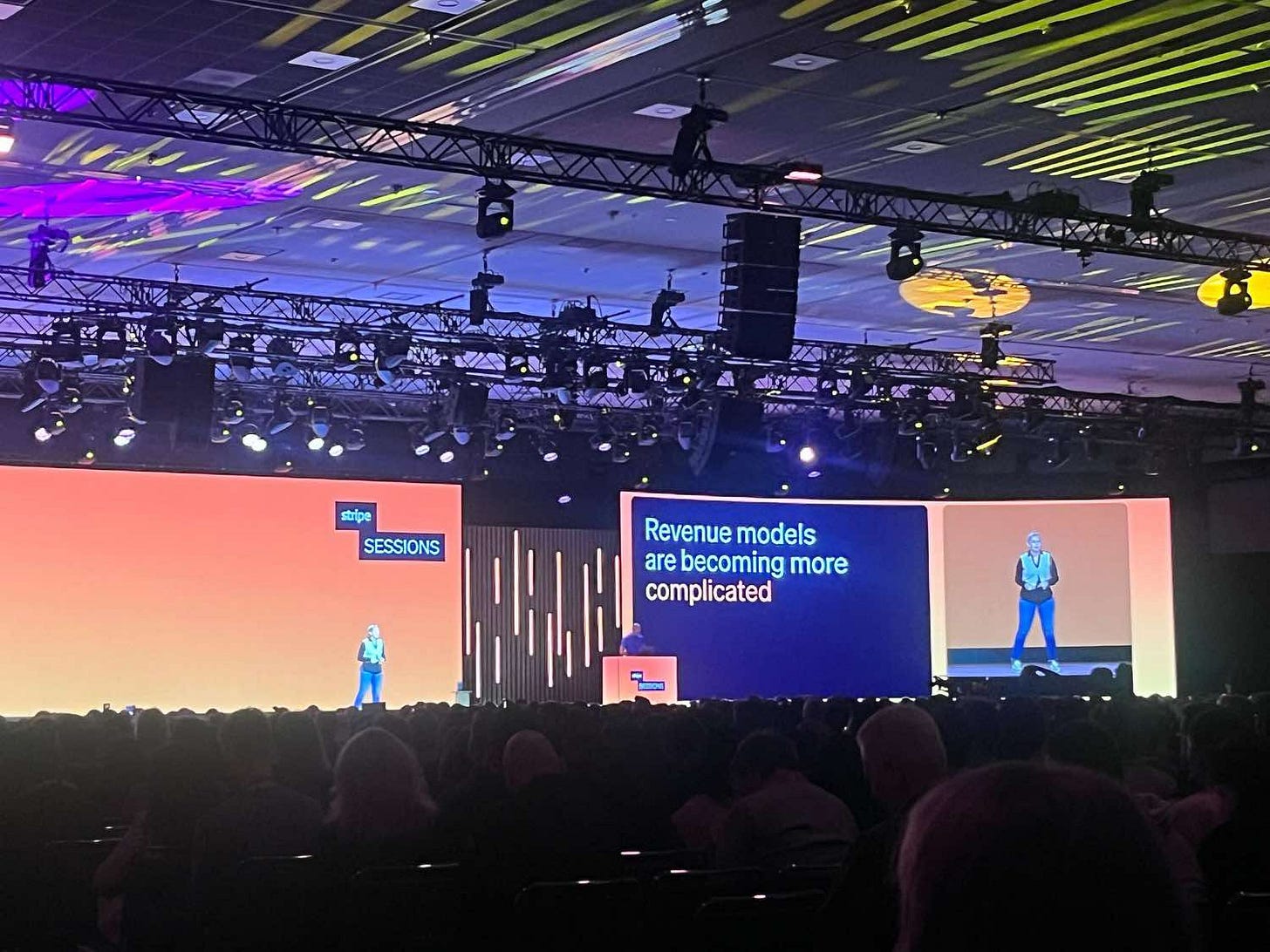Cancer Changed Everything: Finding Empathy, Balance, and Grace through Adversity | Sharmeen Chapp (Stripe)
Plus why empathy and excellence are not mutually exclusive, how Sharmeen grew from IC to VP in 6 years, and what makes Stripe's product culture so unique
Dear subscribers,
Today, I want to share a new episode with Sharmeen Chapp, product lead at Stripe.
In 2021, Sharmeen was diagnosed with breast cancer shortly after becoming a Senior Director at Meta and a new mom. She shared lessons on leading with empathy through cancer, advancing from IC to VP in 6 years, and Stripe's unique PM culture.
Watch now on YouTube, Apple, and Spotify. This episode is brought to you by Amplitude - Get the north star playbook to dive into defining your north star metric.
Sharmeen and I talked about:
(00:00) Empathy starts with leaving your ego at the door
(01:59) I basically product-managed my breast cancer
(05:54) Balancing work, family, and cancer treatment
(12:20) Why empathy and excellence are not mutually exclusive
(17:34) Operating high and low on vision and execution
(25:03) Growing from IC to VP in 6 years
(27:56) Why I deprioritized my own product
(36:59) Stripe PM culture of user-first and humility
(41:55) Remember to give yourself grace
Read on for the interview takeaways.
Facing breast cancer head-on as a new mom
Welcome Sharmeen! Let's start by talking about the toughest moment in your life. You were a new mom who had just joined Meta before being diagnosed with breast cancer. What was going through your mind at that time?
I was only six weeks into my new leadership role at Meta when I received the diagnosis. The first two weeks were the scariest because I had no information. But once I found out that it was stage two, my personality began to shine through.
I basically product-managed my cancer journey.
I made spreadsheets, did research, and tackled it head-on. I’m grateful to have detected my cancer early and to be now on the other side.
Why did you decide to be public about your cancer journey?
I was diagnosed with breast cancer at 35 years old despite having no family history or genetic markers. The doctor told me the chances of this happening were ~0.0003%.
So, if it could happen to me, it could happen to anyone.
Catching cancer early is the difference between life and death.
Raising awareness publicly felt like a way to do something good out of my scary diagnosis. Not every woman going through breast cancer treatment feels empowered to do that. I wanted to reach those who were going through this in silence without the level of support that I had.
What was the result of sharing your journey publicly?
There were a few beautiful things that came out of being so public about my journey:
I reconnected with people I hadn't talked to in years, including childhood friends and old classmates.
Strangers supported me on my public Instagram and X posts. 300K+ people liked my post about becoming cancer-free.
Cancer is one of the worst things in the world. I normally don’t swear, but I don’t feel shy about saying “Fuck cancer” because it deserves strong language.
Meta is a demanding place to work. How did you balance work and family during surgery, radiation, and chemo?
Working through cancer treatments isn’t the right choice for everyone.
For me, cancer made my personal life feel out of control. So, work made me feel productive and restored some of the control I was missing.
At Meta, I set expectations by:
Over-communicating my current energy and capabilities.
Setting strict priorities with my manager and my team.
I knew my cancer treatment schedule far in advance, which helped me communicate exactly when I'd be working and when I'd be unavailable.
I was also fortunate to have an incredible support system at work and home.
What was the toughest moment during your treatment?
There were many tough days when I felt guilty about being a new mom with an 11-month-old during my treatment.
But I had to remind myself that I was fighting for my life and doing my best.
My son was my bright light — he reminded me of why I fought daily. The love I got from friends, family, and strangers kept me strong on my darkest days.
In tech, we often become obsessed with our careers. What did this experience teach you about what truly matters in life?
Nothing is more important than health and family. Cancer makes these learnings stark to me. For your readers, my message is:
You don't want to have cancer to realize how important your health and family are. You must set boundaries and prioritize what matters because no one else will do it.
1 in 8 women will develop breast cancer in the US. What advice do you have for those who are going through this?
Remember that you’re not alone and that we can all do hard things.
Cancer treatments are the hardest thing I've ever done, but our bodies and spirits are incredibly resilient. It's amazing what we're able to survive and go through.
Empathy and excellence are not mutually exclusive
Let’s switch to a more positive topic. You’re one of the most empathic leaders I know. What advice do you have to help others lead with empathy?
Leading with empathy starts with you.
You have to leave your ego at the door and show up with genuine good intentions.
This means truly and actively listening to what your team needs. Another important aspect is realizing that there’s no need for competition. People sometimes think they can only succeed if they do better than others, but it doesn't have to be that way.
There's room for everyone to win.
You want your users to be happy, your business to be successful, and your team to feel empowered. Showing up with empathy means building an environment where these positive emotions can thrive in the workplace.
How do you balance showing up with empathy and holding a high excellence bar?






